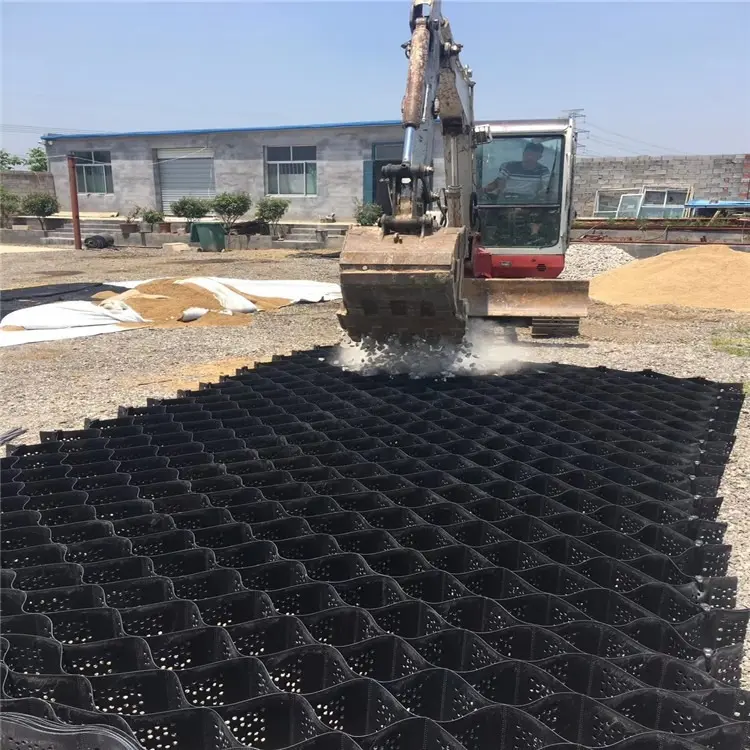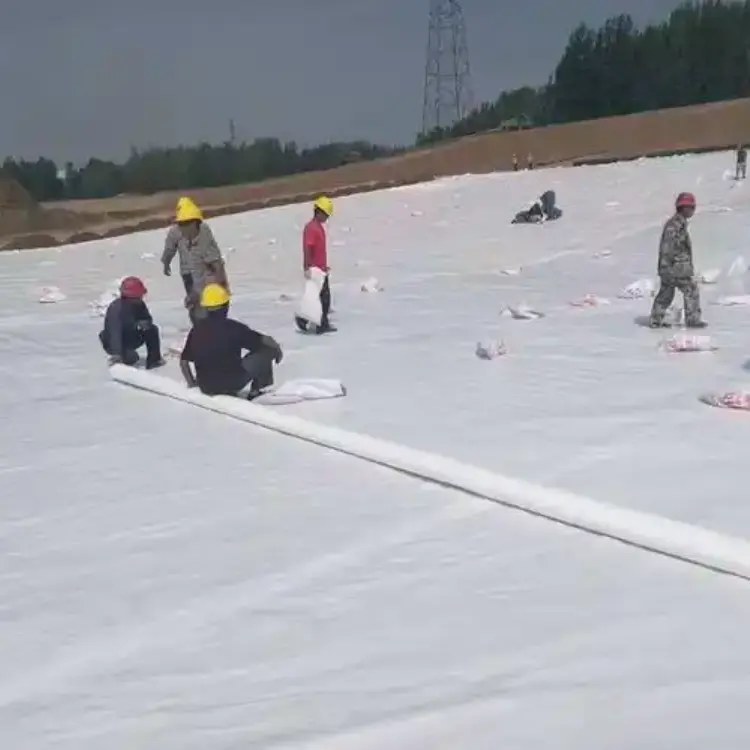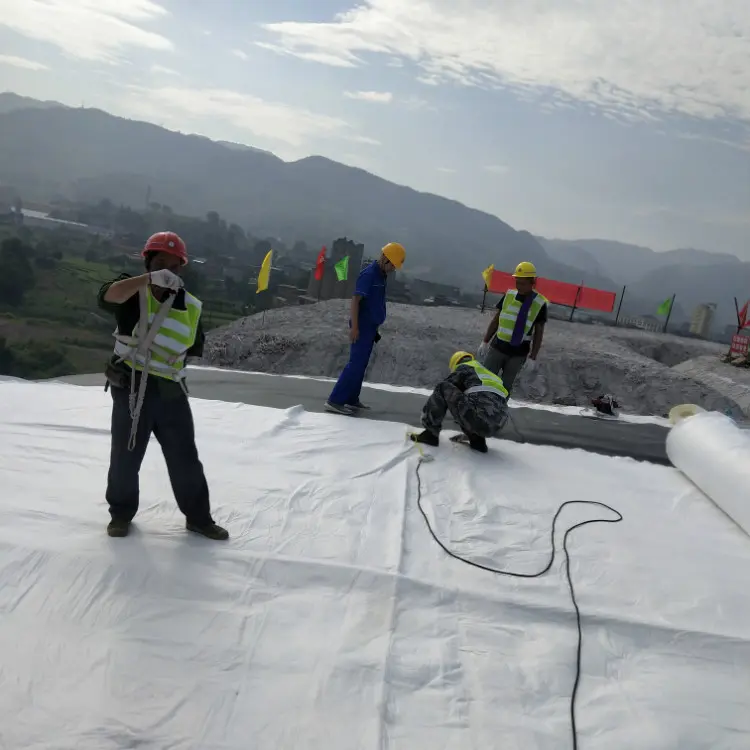Yinchuan Case Study – ASTM D8265 & GB/T 19470 Compliance
I. Design & Preparation Phase
1. Slope Analysis & Design Parameters
- Conduct geotechnical surveys assessing:
- Soil classification (USCS)
- Stratigraphy & groundwater level
- Weathering grade (ISRM standards)
- Determine geocell specifications:
- Cell size: 400-800mm (typical)
- Tensile strength: ≥25kN/m
2. Material Selection
- HDPE/PP geocells with:
- UV stabilization (≥5000 hrs QUV)
- Carbon black content (2-3% for oxidation resistance)
- Certifications:
- ISO 13438 (durability)
- GB/T 17643 (Chinese national standard)
3. Construction Planning
- Develop work breakdown structure (WBS) covering:
- Material logistics routes
- Equipment deployment (compactors ≥18t)
- Critical path scheduling

II. Construction Sequence
1. Subgrade Preparation
- Clear vegetation/loose debris
- Achieve 95% Proctor density
- Install French drains (150mm Φ HDPE pipes)
2. Base Course Construction
- Lay 200-300mm graded aggregate:
- 20-40mm particle size
- CBR ≥80%
3. Geocell Deployment
- Unroll cells along slope contour
- Anchor with J-hooks (500mm spacing)
- Maintain ≤3% installation strain
4. Infill Placement
- Layer-by-layer compaction:
- 300mm lifts (max)
- 92% relative density
- Materials:
- Crushed stone (25-50mm)
- Sandy gravel (SW classification)
5. Surface Treatment
- Apply erosion control matting
- Hydroseed with native grasses
III. Critical Considerations
| Risk Factor | Mitigation Measure |
|---|---|
| Rainfall | Monitor weather forecasts, suspend work during >10mm/hr precipitation |
| Joint Integrity | Use ultrasonic welding for seams (≥80% overlap) |
| Material QC | Sieve analysis for infill (passing #4 sieve ≤5%) |
| Worker Safety | Fall arrest systems for slopes >45° |
IV. Post-Construction
- Curing Period: 28-day minimum
- Monitoring:
- Inclinometers (≤2mm/month displacement)
- Ground-penetrating radar scans
- Maintenance:
- Biannual drainage inspections
- Vegetation health audits


